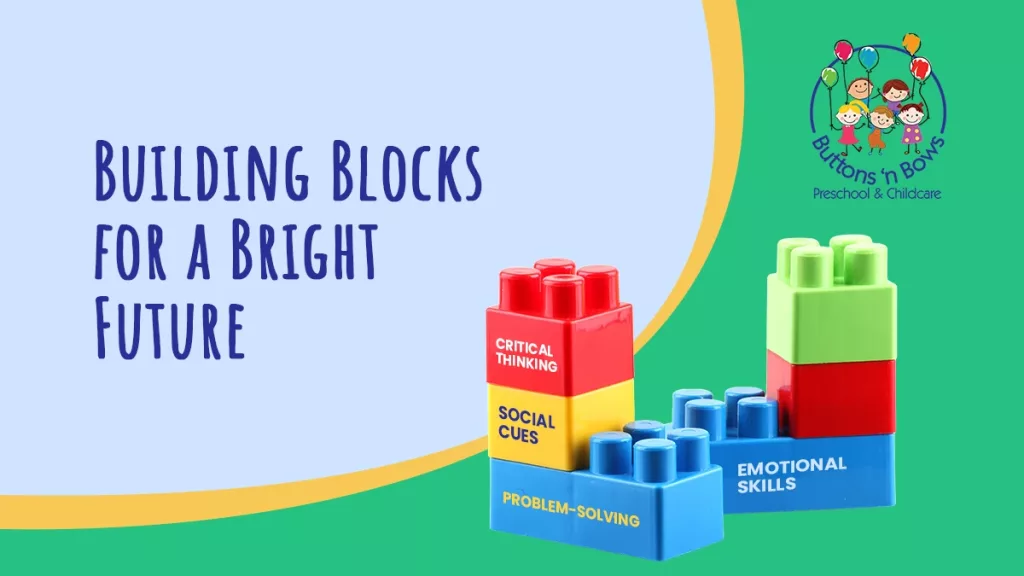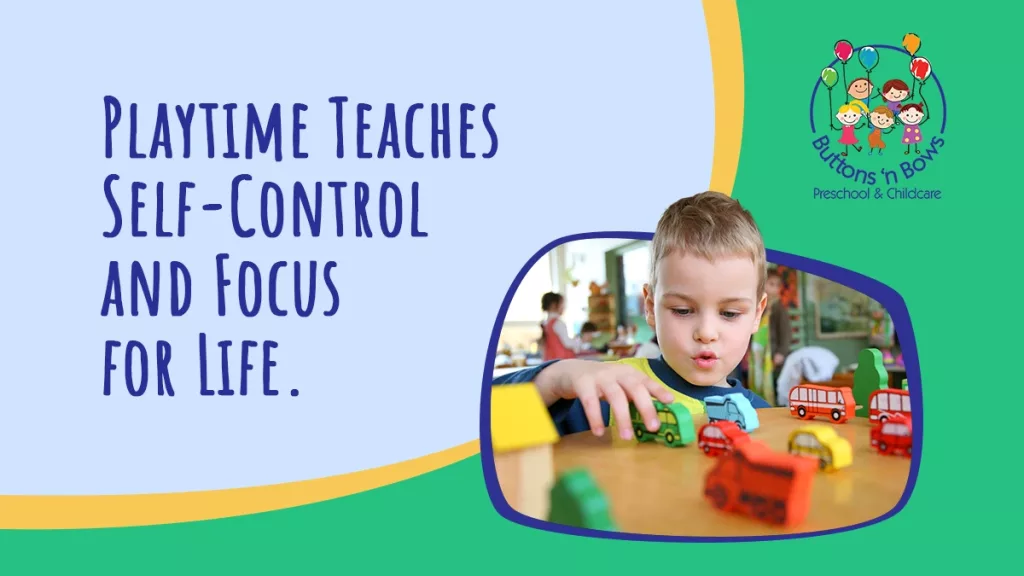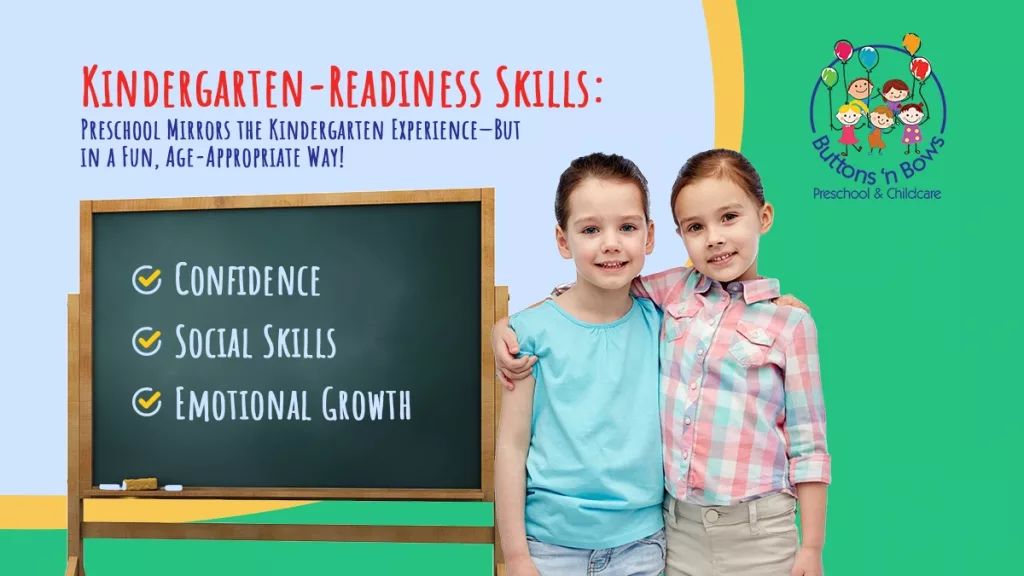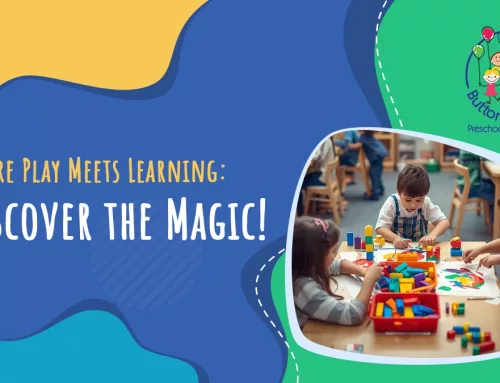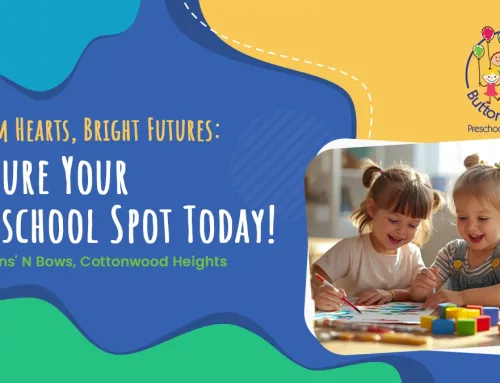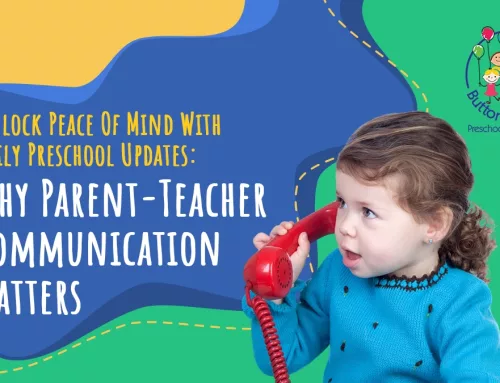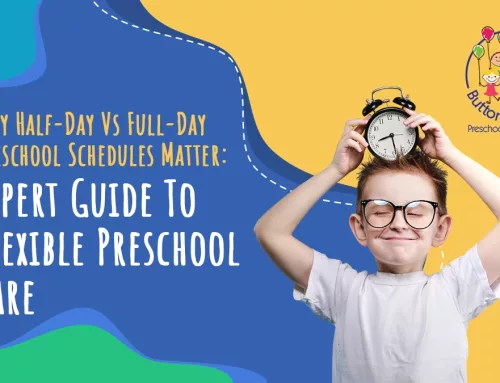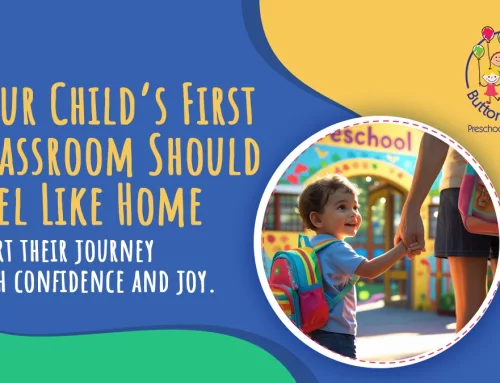When most people think of preschool, they picture colorful classrooms, tiny chairs, and kids singing the alphabet between snack time and story time. And while those moments are certainly part of the magic, the real story lies in the deeper benefits of preschool education. Behind the scenes, children are building essential skills, developing meaningful relationships, and laying the foundation for lifelong learning.
Preschool isn’t just about preparing your child for kindergarten—it’s about shaping the way they think, feel, interact, and grow. That’s why choosing the right early childhood education program is a decision that can profoundly shape your child’s future.
In this blog, Buttons n’ Bows Preschool & Childcare explores seven surprising early childhood education program benefits that go beyond the basics. These lesser-known but powerful advantages may shift the way you see preschool—and help you feel even more confident in taking that next step for your child.
Why Early Childhood Education Is Critical for Development
The first five years of a child’s life are a time of incredible growth—far more than most people realize. In fact, research shows that 90% of brain development occurs before the age of 5. During this window, children are absorbing everything around them: language, emotions, problem-solving, social cues, and more. For more insights, visit the Harvard Center on the Developing Child. This is why early childhood education isn’t just helpful—it’s essential.
So, why is early childhood education critical for development?
It creates a safe, structured environment where young minds can thrive. Through daily routines, engaging activities, and nurturing relationships with teachers and peers, preschool supports the development of both cognitive and emotional skills. Children learn how to think critically, manage their feelings, take turns, express themselves, and adapt to new situations—all in a space designed just for them.
What makes it even more impactful is that these early lessons don’t stay in the classroom. They influence how children handle challenges, communicate with others, and build confidence well into adolescence and beyond.
Now that we’ve laid the foundation, let’s explore some of the most surprising benefits of enrolling your child in a quality early childhood education program. These aren’t just feel-good perks—they’re powerful growth accelerators that can shape your child’s future in meaningful ways.
7 Surprising, Long-Term Advantages of Early Education
Preschool is a powerful stage where children begin to build experiences that shape their emotional, cognitive, and social well-being for years to come. However, the true value of preschool goes far beyond the basics that many of us associate with it.
Amid the familiar benefits of preschool lie surprising and often overlooked advantages, revealing just how impactful this early education can be. Below, we explore seven of these hidden gems that parents may not immediately consider, but should.
1. Preschool Benefits Aren’t Just for Your Child—They Reach Generations
While it’s natural to focus on how your child benefits from preschool in the present day, the ripple effects can span generations. Research shows that children of preschool attendees tend to experience:
- More stable households
- Higher educational achievements
- and fewer financial hardships.
Imagine your child not only thriving in their youth but also passing these benefits down to future generations. Preschool is a gift that keeps giving, fostering a legacy of stability and success.
2. It Reduces the Need for Special Education Services
Preschool offers opportunities for young children to develop important cognitive and behavioral skills. These early interventions often prevent delays that could later require special education services.
A well-structured preschool program helps children meet developmental milestones by offering activities tailored to boost problem-solving, communication, and self-regulation. For parents, this means fewer academic hurdles down the road, making transitions smoother as kids grow.
3. Structured Play Boosts Executive Functioning
It might look like “just play,” but what happens during preschool playtime is much more complex.
Activities such as building blocks, role-playing, or following treasure maps improve executive functioning skills. These include:
- Critical thinking
- Memory
- Adaptability, and
- Self-control.
These abilities are pivotal for every stage of life, from managing challenges in kindergarten to navigating careers later in adulthood.
4. It Makes Quality Education More Accessible
Preschool can serve as an affordable educational option, particularly for families enrolled in publicly funded programs. For parents juggling the high costs of full-time childcare, preschool not only offers financial relief but also ensures children benefit from quality instruction, nurturing, and exposure to peer interactions.
Programs like Head Start also open doors to diverse family resources, making preschool a solid support system for the entire household.
5. Preschool Encourages Advanced Emotional Regulation
Learning to calm down after a tantrum or sharing a beloved toy might not seem revolutionary, but these moments are milestones in preschool.
Children in a structured environment learn emotional regulation techniques, such as pausing before reacting or expressing feelings in words. These lessons become the foundation of emotional intelligence, which is pivotal for forming relationships and overcoming life’s challenges.
6. It Enhances the Mind-Body Connection
From tracing letters to climbing playground equipment, preschool enhances fine and gross motor skills in ways that go beyond physical development. For instance, learning to balance or draw within lines strengthens brain pathways that improve both focus and coordination.
These seemingly small skills eventually translate to achievements as varied as mastering handwriting and excelling in sports.
7. It Levels the Playing Field for Disadvantaged Children
Children from less advantaged backgrounds often begin kindergarten behind their peers in critical areas like language development, problem-solving, and social skills. Without early intervention, this gap can widen over time, affecting their overall academic performance and confidence.
Preschool helps close this gap by offering a structured, nurturing environment where children can develop these essential skills. According to the National Institute for Early Education Research, high-quality preschool programs significantly improve long-term outcomes for children in underserved communities.
As a parent, deciding to send your child to preschool may feel like letting go of their hand for the first time, but trust that you’re giving them something even more significant. By providing a safe, stimulating, and nurturing space for growth, preschool sets the stage for a lifetime of success, happiness, and opportunity.
How Early Learning Programs Prepare Kids for Kindergarten
One of preschool’s most important goals is helping children feel confident and capable as they transition into kindergarten, and quality early learning programs do exactly that.
So, how do early learning programs prepare kids for kindergarten?
It starts with a combination of structure, social-emotional learning, and daily routines that mirror what they’ll experience in a K–12 classroom—but in an age-appropriate, playful, and nurturing way.
Here are a few key kindergarten-readiness skills that strong preschool programs help build:
- Following Instructions: Preschool teachers guide children through simple multi-step directions during activities like art projects, snack routines, or clean-up time—skills that become second nature by the time kindergarten begins.
- Taking Turns and Sharing: Through group games and structured play, children learn to wait patiently, take turns, and use respectful language—all foundational for working and collaborating with others in a classroom setting.
- Managing Transitions: Preschool routines teach children how to shift from one activity to another smoothly (e.g., from playtime to circle time or lunch to quiet reading). These transitions help children feel less overwhelmed by the structured schedule of kindergarten.
- Communicating Needs Clearly: Whether it’s asking for help, expressing excitement, or navigating a disagreement with a peer, preschool helps children use words to solve problems and advocate for themselves—something they’ll rely on every day in kindergarten.
- Developing Focus and Independence: Early learning programs help children build stamina for independent activities like coloring, puzzles, or journal time. These tasks boost attention span, encourage follow-through, and foster self-confidence.
When children enter kindergarten already familiar with these routines and expectations, they’re not just academically ready—they’re emotionally and socially equipped to thrive. And that’s what makes preschool such an invaluable stepping stone.
Your Child’s Growth Starts Now—Right Here at Buttons’ n Bows
Choosing preschool isn’t just about academic prep—it’s about opening the door to a lifetime of curiosity, confidence, and kindness. From growing emotional resilience and social awareness to fine-tuning cognitive and motor skills, the benefits of preschool education extend far beyond the classroom.
At Buttons’ n Bows Preschool & Childcare, locally rooted in Holladay and Cottonwood Heights, Utah, our family-owned school (serving children from 6 weeks through elementary ages) is guided by over 40 years of experience and a deeply personal approach. We’re not just teaching letters and numbers—we’re nurturing young hearts and minds in safe, engaging environments where each child is seen, supported, and inspired.
Every day, our expert-trained teachers (all CPR/First Aid certified) help toddlers build the very kindergarten-readiness skills we discussed—skills they’ll carry with them as they start school and beyond . Whether your child is exploring our thematic learning stations, enjoying yoga or science workshops, or practicing sharing in circle time, they’re growing in ways you might not even see immediately—but will surely benefit from later.
Your child’s growth starts now, and it starts with a place that values their uniqueness, supports their milestones, and celebrates their potential. If you’re curious to experience how Buttons’ n Bows blends play, learning, and heart, we’d love to meet you.
Schedule a tour today to visit our Holladay or Cottonwood Heights campus, meet our loving team, and see firsthand why so many Utah families call Buttons’ n Bows home.




